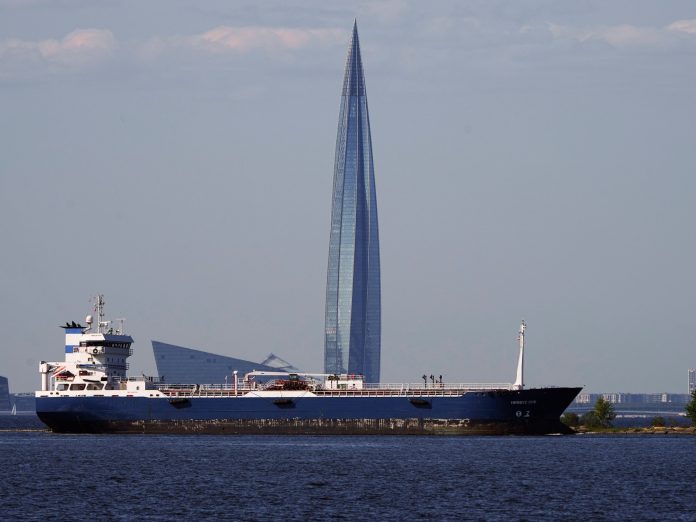Reports from Russian state media on Monday revealed that two Russian ships were damaged in stormy weather over the weekend, resulting in the spill of around 3,700 tons (3,350 tonnes) of low-grade fuel into the Kerch Strait in Russian-occupied Crimea. This incident poses a threat of an environmental disaster in the biodiversity hotspot.
The vessels were carrying approximately 9,200 tons (8,300 tonnes) of mazut, a heavy, low-quality oil product primarily used in power plants. While en route to deliver fuel for the Russian Navy during the ongoing conflict with Ukraine, the tankers encountered severe weather conditions leading to their destruction on Sunday. Tragically, at least one crew member lost their life in the storm, as confirmed by Russian authorities.
Environmental experts have raised concerns about the challenge of containing the spill, with distressing videos emerging showing oil-slicked birds and contaminated shorelines. Ukraine, claiming the area as its own territory, has accused Moscow of breaching sea regulations by employing outdated vessels and is calling for international sanctions against Russia.
Here’s an overview of the incident and the potential exacerbated environmental impacts due to the wartime context:
What happened?
On Sunday, two Russian tankers suffered damage in a severe storm in the Kerch Strait, according to Russian officials.
The Volgoneft 212 tanker, measuring 133 metres long, was carrying a crew of 15 and a load of fuel oil when it ran aground and had its bow ripped off by a massive wave, as reported by Russia’s TASS news agency. Videos circulated online showing the vessel sinking vertically into the sea, leaving behind oil residues as it went down.




